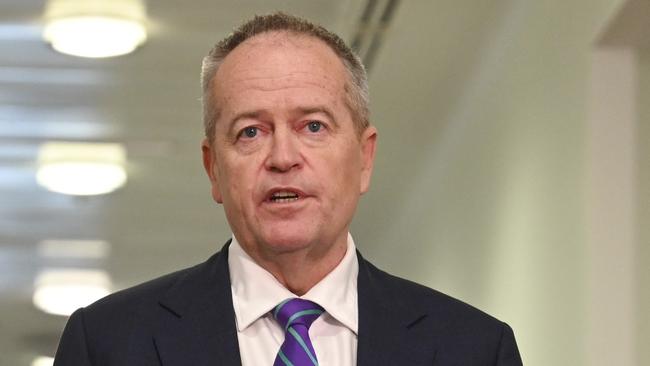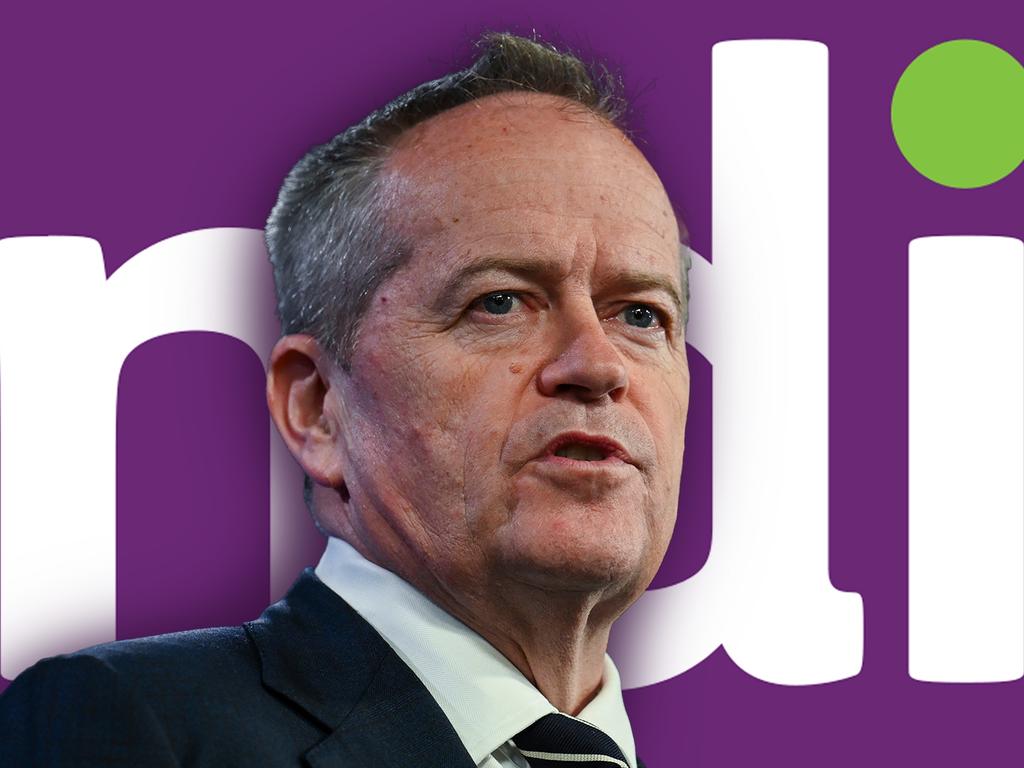Labor told not to ‘wave the white flag’ on prosecuting NDIS crims
Disability advocates have criticised the National Disability Insurance Agency for suggesting it is not feasible to prosecute every instance of fraud within the NDIS.

Disability advocates have criticised the National Disability Insurance Agency for suggesting it is not feasible to prosecute every instance of fraud within the NDIS, urging Bill Shorten to do more to stamp out rorting of the scheme.
In the wake of revelations at Senate estimates that 90 per cent of plan managers overseeing up to 100 participants were committing fraud – at a cost of about $2bn a year to the taxpayer – advocates and the Coalition warned Labor against “waving the white flag” on prosecuting criminals exploiting the NDIS.
“There is a vast gulf between genuine providers of essential supports for people with disability, and their history of community service, and criminal elements taking advantage of taxpayer dollars,” National Disability Service deputy chief executive Emily Forrest said.
“Unfortunately, right now it is too easy for criminals to operate in the system, and government has to address that.”
NDIA head of fraud and integrity John Dardo told Senate estimates on Monday night that billions of dollars were being inappropriately spent on items including expensive cars, holidays and even illicit drugs such as ice and cocaine.
Despite NDIS Minister Shorten confirming 220 fraud investigations were under way within the NDIS and several billion dollars of payments were being reviewed, Mr Dardo said the agency was unable to prosecute every criminal because the sheer scale of the issue would overwhelm the justice system.
People with Disability Australia president Marayke Jonkers said she didn’t understand why there wasn’t capacity to prosecute all malicious rorters.
“I’m trying to understand where (Mr Dardo) is getting that idea,” she said.
“Do they not have the staff? If it’s that, and if this is a priority, hire more.”
Ms Jonkers also warned that some “fraud” being detected by the NDIA might be innocent, citing an example of the agency flagging issues with her invoices to support workers that included a much higher hourly rate than normal.
“But this was just because of the public holiday rate of the Easter weekend. So you see, some of this ‘fraud’ being identified might capture things like that,” she said.
Opposition NDIS spokesman Michael Sukkar raised alarm with Mr Dardo’s comments over the inability to prosecute all criminals rorting the scheme.
“There are not enough prosecutions of fraud, and it’s startling that the government has waved the white flag on more criminal prosecutions,” he said.
“If cases of fraudulent activity are not being prosecuted, that of itself will only inevitably encourage even more fraud.”
Greens disability spokesman Jordon Steele-John accused Labor of attempting to “distract” from its root and branch reforms to the NDIS by highlighting the issue of fraud.

Senator Steele-John pointed to research by Redbridge ahead of the release of the NDIS review that conducted “narrative” testing with focus groups around changes to the scheme, which found a higher “tolerance” to messaging that focused on “fraud, rorts and cheats”.
“We must remember that Minister Shorten has spent over $400,000 on Redbridge focus groups testing the messaging … to enable him to get away with making cuts to the NDIS,” Senator Steele-John said.
“The reality of this is that it is an attempt to mask the impact that this proposed (NDIS) bill will actually have on disabled people, the harm that it will do to us, the harm that it will do to our families, the way in which it will make our lives more difficult.”
Mr Shorten said there had been “a remarkable degree of naivety” in the management of the scheme under the previous government and while Labor was responsible for the invention of the NDIS, it had not set up “the payment systems” in the scheme.
“You’ve got a large pot of government money, (the Coalition) didn’t invest in the back-office systems to be able to scrutinise payments,” he said.
While declaring there had already been changes since Labor came to government, he said it would take two to three years before there was any “significant improvement”.
The Australian asked the NDIA how many cases of fraud had been referred in the past two years, but the agency did not respond by deadline.
Concern over the fraud of the scheme comes as Labor passed its NDIS laws through the lower house on Wednesday, which will give new powers to the agency to refuse funding top-ups and more explicitly categorise which supports will be funded by the scheme.
In a joint submission in May, states and territories said the legislation would “make immediate and fundamental changes to the way the NDIS operates, including how access to the scheme is determined, how participant needs are assessed and how participant budgets are set”.
“We are deeply concerned that this way of going about the reform – including through this bill – will lead to worse outcomes for more Australians with disability and their families,” the submission said.








To join the conversation, please log in. Don't have an account? Register
Join the conversation, you are commenting as Logout